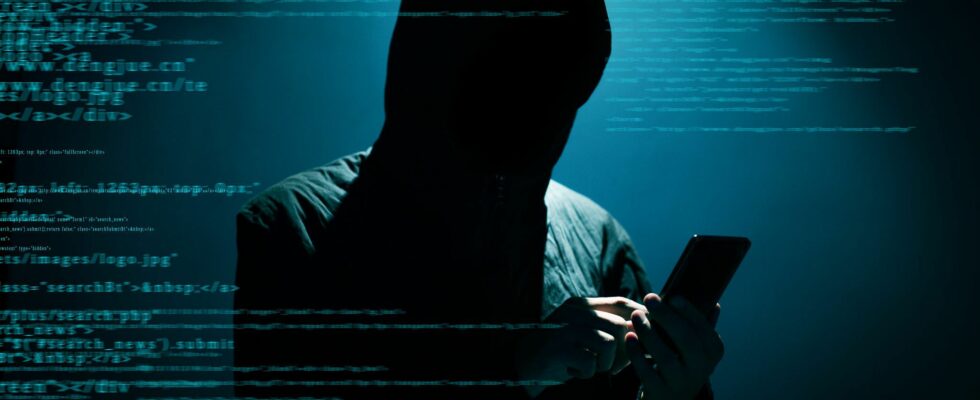In 2013, who could have imagined Daesh, the invasion of Ukraine, the assault on the Capitol? To deal with even the most surprising threats, the Ministry of the Armed Forces has asked the Chiefs of Staff, within the framework of the next military programming law, to detail the dangers hanging over our country. Clearly, to propose credible scenarios justifying the use of force. Independently, L’Express wanted to develop its own “black scenarios” in order to question the preparation, the possible flaws in the French defense, and thus fuel the necessary public debate on these questions at 60 billion euros per year. .
Around forty experts – researchers, generals, diplomats, former executives of the DGSE – were asked to deliver their analyzes of the main threats that await France by 2030. Their framework was developed from a geopolitical tension real, to which we have integrated, on the suggestions of our great witnesses, Murphy’s law, himself an American soldier: “Anything that is likely to go wrong will go wrong.” Russia, China, cyber, jihadism… The majority of these hypotheses overlap with those on which the armies are working. These scenarios do not constitute forecasts. The military, considering the worst on principle, are the first to know: it is never certain. Especially if you prepare for it.
Scenario 1: 2026, Russian tanks enter Estonia and Lithuania: “The area is a weak point for NATO”
Scenario 2: 2028: Madagascar takes over the Scattered Islands from France, China pulls the strings
Scenario 3: 2026: four Chinese hypersonic missiles sink the aircraft carrier Charles-de-Gaulle
Scenario 4: 2024, Mali falls into the hands of jihadists: “A new Daesh could emerge”
Scenario 5: A cyberattack extinguishes Paris
Thursday, June 3, 2027, 10:04 p.m. The evening-debate of the legislative elections follows its course on France 2 and BFM TV when, in an instant, everything stops in Paris. More current. Homes, streets, hospitals are plunged into darkness. Telecom antennas were also hacked, as were several satellites. No longer possible to make a call. Automated commercial doors are deactivated, hotel rooms closed by badges are unlocked, causing several lootings. The largest cyberattack against France hit many targets. “We will have a major cyber attack the day the countries capable of carrying it out will have drawn the conclusions of the war in Ukraine, which shows that only large-scale coordinated action can be effective,” notes Colonel Olivier Mas, former executive of the DGSE.
When power was restored, shortly after 5 a.m., the human toll was 21 dead: twelve people died in hospitals, while seven succumbed to traffic accidents. Two were killed in an elevator accident, the emergency stop device having failed. The attack could have been more deadly, we especially wanted to send a message. “A cyberattack can be imagined on a whole spectrum. There is of course the total blackout, but we saw with the war in Ukraine that the announced digital Fukushima had not taken place, indicates Julien Nocetti, teacher- cyber researcher at Saint-Cyr. We can also proceed gradually and repeatedly, targeting critical infrastructures, so as to play on the morale of the population.”
Suspicions towards Russia and China
Nobody claims the aggression. “There would only be two countries capable of doing this on such a scale: Russia and China”, analyzes Olivier Mas. Two States with which France maintains execrable relations: Russia is still at war against Ukraine, while Paris has just come out in favor of sanctions against China at the WTO. A retaliatory measure linked to its open conflict with the United States over Taiwan.
In its investigations, the National Agency for the Security of Information Systems discovers that sites of the industrial and technological base of defense have also been targeted. Ultra-classified data has been stolen. The sign that the attack is of a different nature. “Mastering quantum computing will be a technological breakthrough because it should break some data encryption, find passwords in seconds. The country that gets there will have an advantage for months, maybe a year. It will be able to extinguish Paris”, advances General Jean-Marc Vigilant, director of the School of War between 2020 and 2022. The unprecedented sophistication of cyberaggression convinces the experts that only one country is behind all this: China . But Beijing disputes with virulence.
On Monday, June 14, the members of NATO unanimously invoke article 5, which provides for collective defence. “It is entirely possible to invoke Article 5 following a cyberattack. However, the scale of the response is not specified”, warns General Jean-Paul Paloméros, former Head of State- Major of the Air Force and ex-Supreme Commander Transformation of NATO. It is still necessary to identify the aggressor. In the absence of material evidence, the other countries of the Alliance refuse to specifically target China. To the great displeasure of France, which must content itself with diplomatic and economic sanctions… While in turn considering a cyber response which, of course, it will not claim.
